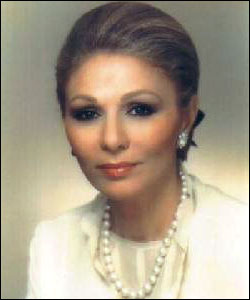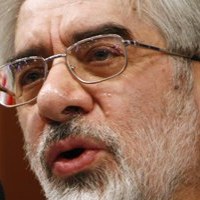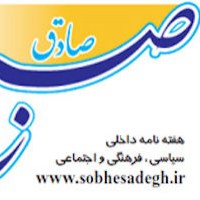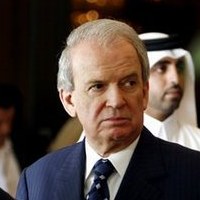![]()
This letter was written by Empress Farah Diba Pahlavi (married with the late Mohammad Reza Shah Pahlavi of Iran) in response to the NewYorkTimes article about the 1953 coup in Iran. She also disputes the plot theory outlined in that article CIA and Iran. You can also read Ardeshir Zahedi’s response to the NewYorkTimes article here CIA and Iran – Zahedi’s version
Empress Farah Pahlavi’s response to the New York Times

Howell Raines Esq.
Editorial Page Editor,
The New York Times
229 West 43rd ST.
New York, NY 10036-3959April 20, 2000
Dear Mr. Raines,
The article “a Secret C.I.A. History” printed in the New York Times on April 16, 2000 renders a self-lauding, exaggerated, and partial account of the events of 1953. It also makes several erroneous and unfair remarks about my late husband, Mohammad Reza Shah Pahlavi. Contrary to what the so-called secret history suggests, my husband’s hesitation about dismissing Premier Mossadegh did not result from his indecisiveness. The Shah had strongly supported Dr.Mossadegh in the fight for the nationalization of Iran’s oil industry, agreeing with him that Iran had been systematically exploited by the British and other foreign powers. For him, the Premier’s struggle to emancipate Iran’s resources took precedence over all other issue save protecting the nation’s independence and territorial integrity. Dr.Mossadegh misperceived the international array of economic and military powers deployed against him and Iran. He overestimated the strategic importance of Iran’s oil to the Western world. The country was taken step by step to a political and diplomatic impasse. Iran’s economic and social conditions deteriorated. The Communist Party grew inordinately in size and power, penetrating several critical government institutions including the armed forces. In the meantime, his former allies – the middle class, clerics, merchants, and some members of the national front renounced him.
My husband supported Dr.Mossadegh as long as possible. For several months, he resisted many members of the political elite, including several of the Premier’s former allies, who insisted that Dr. Mossadegh be discharged. The Shah’s reluctance sprung partly from his wish to be certain that deposing the premier accorded with Iran’s constitution. It was only when the Prime Minister arbitrarily dissolved the constitutionally elected Parliament, and the Shah was convinced that the country’s national independence and territorial integrity were manifestly threatened, did he decide to dismiss Dr.Mossadegh.
To claim that the Monarchy was saved in 1953 because of the C.I.A involvement and that the late DR. Mossadegh was removed from power with a sum of money is an insult to every Iranian.
The report says that the message sent to Tehran on the night of August 18th was that ” the operation has been tried and failed.” The Monarchy was saved because it was the will of all Iranians. While some selected documents produced by a specific agency may indeed be conducive to the current disposition of a specific administration, it would be wrong to assume any objective observer, be it an Iranian or foreigner, base his opinion solely on such a limited account.
It is unfortunate that in an attempt to appease the current ruling clerics in Iran, the government of the United States and increasingly the media have chosen to disparage the late Shah of Iran without consideration of his pivotal role in regional and world peace and his service to his country. It is equally unfortunate that they choose to confuse the attitude of the present regime in Iran towards the United States with that of the people of Iran.
The thirty-seven years of the Shah’s reign concurrent with the administration of eight US Presidents shows a close and mutually beneficial alliance for most of the time.
Contrary to recent statements by US officials, Iranian people never held animus toward American before or after the events of 1953. Witness the friendship Iranians extended to many American in Iran prior to the revolution and the hospitality shown to the few Americans now traveling to Iran. In the interest of the two peoples, it is essential that no one allow this misconception to cloud sound judgment.
Iran will rise from her ashes.
Sincerely yours,
Farah Pahlavi



 RSS
RSS











Latest Comments
... [Trackback] [...] Read More: crethiplethi.com/contact-form/trackback/ [...]...
Hello Mike, Thank you for your positive feedback to the article. I felt there wasn’t too much critical analysis of ...
Thanks for this considered and well constructed article. A follow up article on the manner in which the editorial contro...
THE CLUELESSNESS OF CLAIMING THAT OBAMA'S MIDDLE EAST POLICIES WERE A FAILURE CANNOT BE FURTHER FROM THE TRUTH, WHAT THE...
As long as Obama is the president of the usa do not trust the us government......